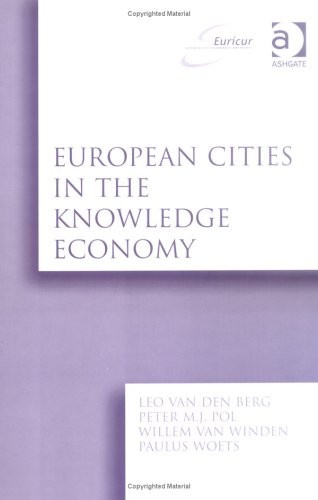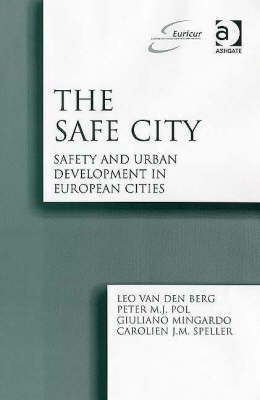EURICUR Series (European Institute for Comparative Urban Research)
2 total works
European Cities in the Knowledge Economy
by Leo van der Berg, Peter M. J. Pol, Willem van Winden, and Paulus Woets
Published 17 August 2005
Across Western Europe, the emphasis has shifted from physical manufacturing to the development of ideas, new products and creative processes. This has become known as the knowledge economy. While much has been written about this concept, so far there has been little focus on the role of the city. Bringing together comparative case studies from Amsterdam, Dortmund, Eindhoven, Helsinki, Manchester, Munich, Munster, Rotterdam and Zaragoza, this volume examines the cities' roles, as well as how the knowledge economy affects urban management and policies. In doing so, it demonstrates that the knowledge economy is a trend that affects every city, but in different ways depending on the specific local situation. It describes a number of policy options that can be applied to improve cities' positions in this new environment.
The Safe City
by Professor Leo van den Berg, Peter M. J. Pol, Giuliano Mingardo, and Carolien J.M. Speller
Published 18 April 2006
As numerous local authorities of European cities invest in the attractiveness of their urban areas in the hope of attracting new inhabitants and economic activities, safety has become a topical subject. Perceived safety is a major factor in a city's attractiveness and fear of crime can have a large impact on location decisions, with ensuing economic consequences. This book examines the role of security in urban development and its local policy implications. Comparing eleven European cities, it analyses how actual and perceived security is evolving, and what the economic, social and spatial consequences are of a changing perceived security. While crime has decreased in eight of the eleven cities, fear of crime has increased in all of them. This book discusses the factors influencing this fear, including the role of the media, the quality and maintenance of the built environment, socio-economic inequality, calamities and terrorism.
It examines how these ingrained perceptions of insecurity can persist, and require more innovative local safety policies and the involvement of a larger number of actors and other forms of social policy, such as education, employment and improving social cohesion.
It examines how these ingrained perceptions of insecurity can persist, and require more innovative local safety policies and the involvement of a larger number of actors and other forms of social policy, such as education, employment and improving social cohesion.

